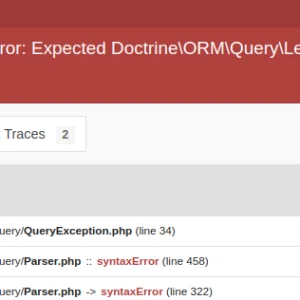Introduction:
SQL (Structured Query Language) and DQL (Doctrine Query Language) are fundamental tools for interacting with databases in web development. While both serve similar purposes, they have distinct syntaxes and features that developers must understand to effectively query databases in their applications. In this comprehensive guide, we’ll explore the key differences between SQL and DQL, providing practical examples to illustrate each point.
Purpose:
SQL: SQL is a standard language used to interact with relational databases. It is primarily used for querying, inserting, updating, and deleting data from a database. For example:
SELECT * FROM users WHERE age > 30;
DQL: DQL is a query language specific to the Doctrine ORM (Object-Relational Mapping) system in Symfony and other PHP frameworks. It is used to query data from entities mapped to a relational database. For example:
$query = $entityManager->createQuery(
'SELECT u FROM App\Entity\User u WHERE u.age > :age'
)->setParameter('age', 30);Usage:
SQL: SQL is used directly in database management systems like MySQL, PostgreSQL, Oracle, SQL Server, etc.
DQL: DQL is used within PHP applications that utilize the Doctrine ORM.
Syntax:
SQL: SQL syntax involves keywords like SELECT, INSERT, UPDATE, DELETE, JOIN, WHERE, GROUP BY, ORDER BY, etc. It operates on tables and columns.
DQL: DQL syntax is similar to SQL but operates on entities and their properties. It uses keywords like SELECT, FROM, WHERE, JOIN, etc., but the syntax for referencing entities and their associations is different.
Features:
SQL: SQL provides a wide range of features for working with relational databases, including data manipulation, transactions, schema definition, user management, and more.
DQL: DQL focuses specifically on querying data from entities and supports features like entity inheritance, association fetching strategies, hydration modes, and more.
Portability:
SQL: SQL queries are portable across different database management systems, although there may be some differences in syntax and supported features.
DQL: DQL queries are specific to Doctrine ORM and are not directly portable to other ORM systems or database management systems.
Examples:
SQL Examples:
Simple Select Query:
SELECT * FROM users WHERE age > 30;
Join Query:
SELECT users.*, orders.total FROM users INNER JOIN orders ON users.id = orders.user_id;
Aggregate Function Query:
SELECT COUNT(*) AS user_count, AVG(age) AS avg_age FROM users;
DQL Examples:
Simple Select Query:
$query = $entityManager->createQuery(
'SELECT u FROM App\Entity\User u WHERE u.age > :age'
)->setParameter('age', 30);
Join Query:
$query = $entityManager->createQuery(
'SELECT u, o.total
FROM App\Entity\User u
JOIN u.orders o'
);
Aggregate Function Query:
$query = $entityManager->createQuery(
'SELECT COUNT(u) AS user_count, AVG(u.age) AS avg_age
FROM App\Entity\User u'
);
Conclusion:
By exploring these examples, we’ve seen how SQL and DQL can be used to perform various database operations, from simple SELECT queries to more complex JOINs and aggregate functions. Understanding the syntax and features of both SQL and DQL is essential for working with databases in Symfony and other PHP frameworks.
I hope this article will help you to understand the differences between SQL and DQL. While SQL is a standard language for interacting with relational databases, DQL provides a higher level of abstraction tailored to object-oriented PHP applications using Doctrine ORM.
You can get more details about this topic from here.
To get to know more about Symfony, you can check these articles too.





